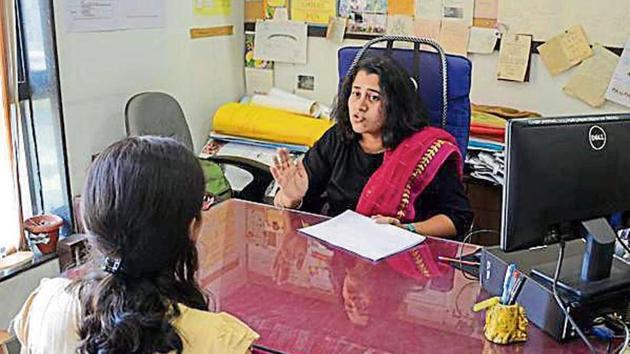Mental well-being of students under focus at College of Engineering, Pune
The college, currently, has three counsellors as a part of the faculty who take regular counselling sessions of the students who need help. The new centre will expand this activity with external experts such as a psychologist and psychiatrist, said Nandini V Iyer, head, COEP Applied Science department.
The 165-year-old College of Engineering, Pune (COEP), has taken decisive steps to deal with stress and depression among its engineering students. It has planned a wellness centre under the Applied Science department to aid students and help them cope with mental health issues before it aggravate.

Professor Dr BB Ahuja, COEP director, said that the counselling of students who feel extreme stress due to exam pressure has been an ongoing activity at the college. However, to deal with mental health issues of students more effectively, a wellness centre is now being established.
“At least 50 per cent of students in our college are from the rural background and many of them cannot cope with engineering studies and hostel issues and this creates a pressure on them. Through this centre, we will try to build confidence in our students so that no one is left behind, not only in academics, but also in their future careers,” Ahuja said. The centre will become operational in a month, Ahuja added.
“Students face family issues, academic pressure, relationship and financial issues. Mental health issues tend to be lifelong which range from depression, anxiety, obsessions, suicidal behaviour to substance-dependence and schizophrenia. Students also face peer pressure, tough syllabus and parental expectations,” said Dr Kshipra Moghe, assistant professor and consulting psychologist.
There are at least 3,000 Bachelor of Technology (BTech) and Master of Technology (MTech) engineering students in COEP and 80 per cent live in the college hostels.
The college, currently, has three counsellors as a part of the faculty who take regular counselling sessions of the students who need help. The new centre will expand this activity with external experts such as a psychologist and psychiatrist, said Nandini V Iyer, head, COEP Applied Science department.
It will have facilities for private counselling sessions and multiple activities on the campus such as listening circles, where students can talk openly about the issues they face; training sessions on different topics and psychometric tests when required.
Dr Moghe said that since most of the students reside in hostels, the problem starts with adjustment to the hostel life. Added to this is the pressure of project submissions, exams and other activities. “So, when a student comes to us, we first gather all the details to make a case history and then, start with the counselling sessions. Often, in the first session itself, we are able to provide solutions and in the next sessions, students are relieved and gain confidence,” she said.
A successful case study
A third-year engineering student from the college had family issues, especially with his father, which was affecting his studies. The student came forward for assistance and his counselling sessions began. Initially, he had angry outbursts and regular fights with family members. He was advised to begin with “acceptance” of his father; avoid overreacting and start speaking to his father. He was taught some meditation and breathing techniques. All of this led to a positive change with better academic results. “Problems will be there, but your attitude to deal with them must be positive,” said Dr Moghe.






